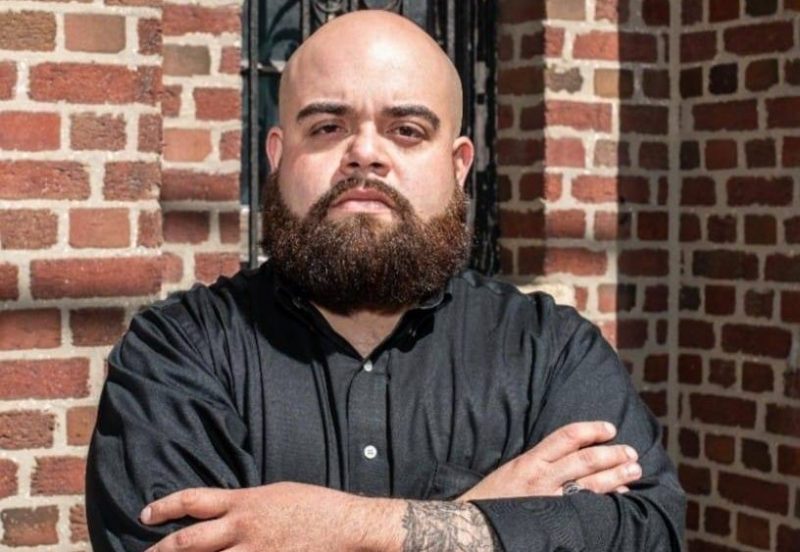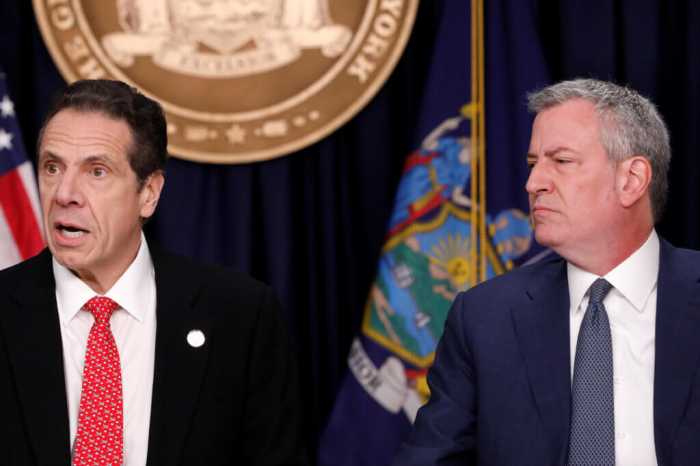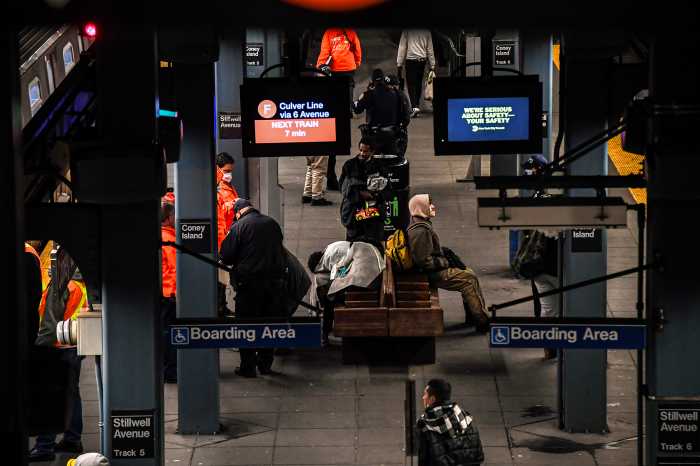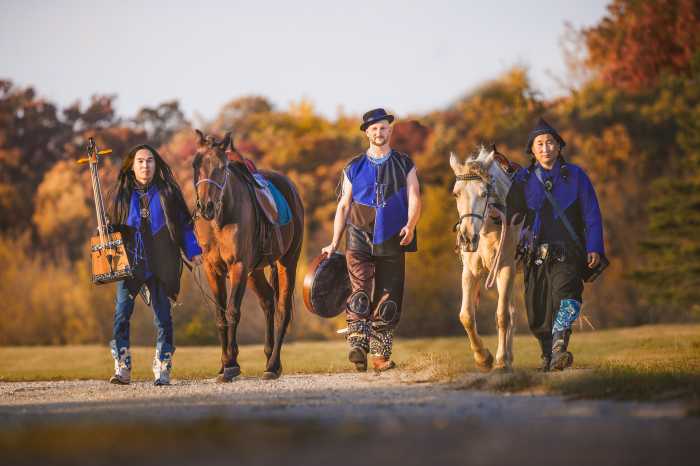Father Mike Lopez’s work with the homeless began with a case of mistaken identity.
He’d just opened his parish, All Saints, in Ridgewood and was walking down the street one day when people started yelling after him.
“Brother Mike! Brother Mike! Where have you been?” they said.
By coincidence, another priest, also named Mike, had lived in the neighborhood and worked closely with the homeless population. Just before Lopez moved into the neighborhood, the other Mike had moved out. The two Mikes looked alike, so when Lopez had walked down the street that day, they thought the old Mike was back.
“I said, ‘Wow, this must be from heaven,’” said Lopez, a 37 year old priest and a member of a monastic community, the Missionary Benedictine of the Poor, about that fateful day. “So we kind of just adopted a homeless community that has been here for a long time.”
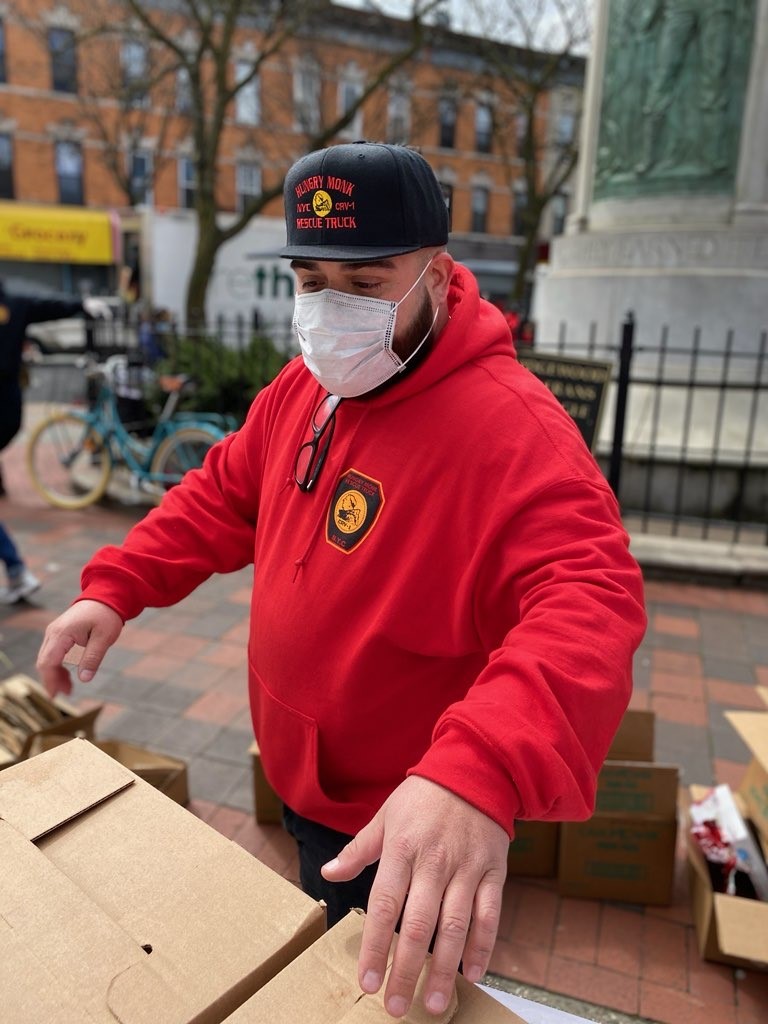
Now, eight years later, Lopez is one of 22 finalists out of a pool of 6,500 for the David Prize for his work with the homeless. If chosen as one of the five winners of the prize, he will be awarded $200,000 to go towards his mission.
“If I win the David Prize or not doesn’t really change much of my life,” Lopez said about his nomination. “I will continue my dedication to the work.”
The David Prize is a “celebration of individuals and ideas to create a better, brighter New York City,” according to their website. Nominees can be anyone who works in the New York City’s five boroughs who has “the grit and vision to change our communities, our culture and our future for good.”
Lopez now runs a multipronged effort to combat homelessness and food insecurity in Ridgewood, Elmhurst and Corona. That effort includes a food pantry and a mobile outreach center called the Hungry Monk Rescue Truck. The Hungry Monk Truck is housed in a converted “beat up, old ass ambulance,” as he describes it. He also runs a bed program for homeless adults living on the streets who don’t want to go to shelters.
“We’ve found a niche in dealing with a community who oftentimes refuses to come inside,” he said.
Lopez said that he didn’t know he’d been nominated for the prize until staff at the David Prize reached out to him for more information on his efforts. He then had to submit more materials about his homeless outreach and go through an intensive interview process which took place by phone and video conferencing because of the pandemic.
If selected, he said he hopes to put the money towards programming. Money for his programs has always been the biggest challenge.
“My greatest loyalty is to the poor,” he said. “It’s been to my detriment.”
The desperation within his community has only increased because of the coronavirus pandemic, especially for the food pantry, he said.
“The need is here and the need is going to continue for a while,” he said. “We want to be able to sustain the amount of pantry work we do while also continuing to focus on the homeless community.”
What started with what he called “retired church grandmas” making sandwiches and handing them out once a week to hungry homeless people quickly turned into the Hungry Monk Rescue Truck which drove around bringing hot meals directly to the homeless out on the streets.
But then he and his volunteers realized that there were families that needed food too. So, they opened a small food pantry which, before the pandemic, distributed food to about 300 families per week.
In mid-March when the city first started to shut down because of the COVID–19 pandemic, Lopez, who has a background in law enforcement and emergency response, said that he realized his church needed to step up to help the community during the public health crisis. So, he turned to the homeless people living in the church in the bed program.
“I said, ‘Listen, guys, since we have to quarantine, and you guys have to quarantine with me, I’m just going to stay here with you guys at the church and we’re just going to do food pantry as we’re allowed to,’” he recounted.
They all said yes.
Lopez said he quarantined with the men in the program for about 90 days, all the while operating the food pantry. At its peak during the pandemic, they distributed food to 1,700 families in a single day, he said.
The pantry is still going strong more than three months later, and is moving into a storefront on Cypress Avenue that the local Business Improvement District gave them.
The experience has taught him a lot about people, food, and necessity. One moment in particular stood out to him.
A man from the neighborhood who Lopez described as causing trouble for their programs and vocal about not wanting homeless services in the community showed up at the food pantry one day needing food.
‘It was one of our homeless men that served him,” he said. “It was the pinnacle of my ministry, that’s for sure.”


